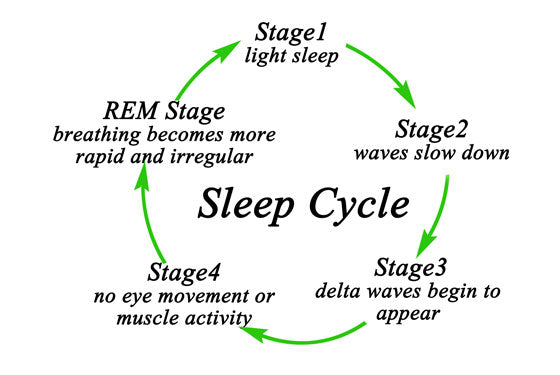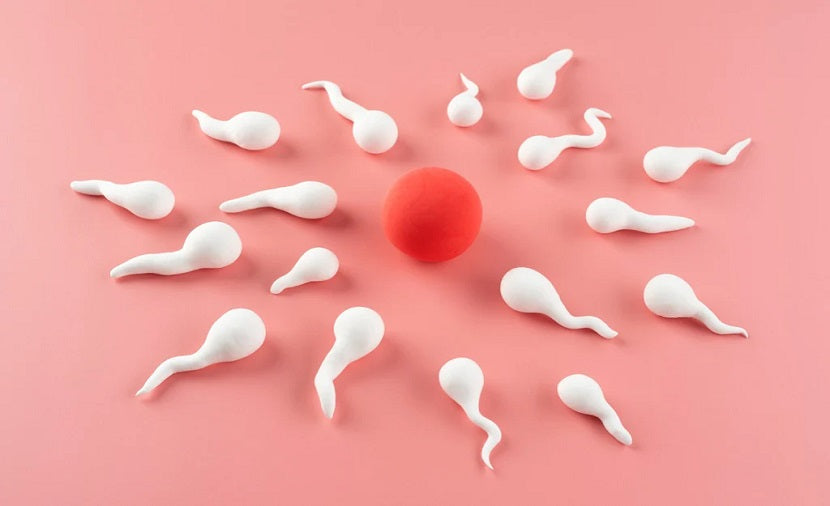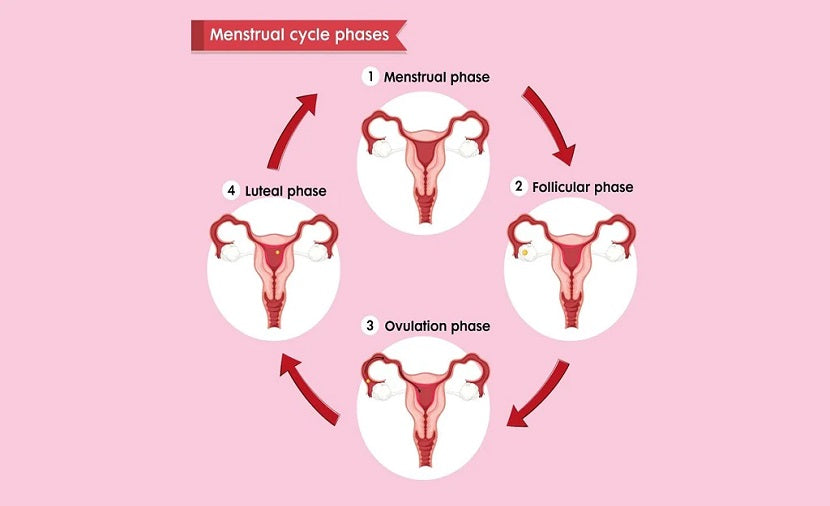
When it comes to that time of night when we contemplate sleep, we don't usually think about how our hormones will help us to drift into peaceful slumber. But it is during this time when our body is inactive that our hormones replenish and reorganise themselves after battling the daytime highs and lows.
Every activity we do during the day affects our hormone levels and ultimately, the quality of our sleep. Whether we are running errands, spending three hours watching TV or are busy with shift work, our body needs the time to regulate itself again whilst we sleep.
Understanding the connection between hormones and sleep may help improve your sleep quality and general well-being.
For both men and women, changes in our sex hormone levels can affect how well we sleep. The circadian rhythm which controls the sleep cycle is intimately connected with the endocrine system. In fact, the hypothalamus which controls the endocrine system also controls the circadian rhythm.
What Is The Body Clock?
Our circadian rhythm (frequently referred to as our body clock) is essentially our 24-hour sleep/wake cycle. With the onset of darkness at sunset, the pineal gland senses this change in light and melatonin is released to start preparing the body for the sleep process. This is the reason why bright and flashing lights, as well as flickering television or computer screens, are not conducive for initiating a healthy sleep phase.
Several hormones are released into the bloodstream as we sleep, including those which are essential for the repair and growth of the body. Some studies have shown that people who get less than seven hours sleep are more likely to be obese or overweight, have imbalanced blood sugar levels, are resistant to insulin, and have thyroid issues. It is no wonder that shift workers, mothers who wake often at night, insomniacs and the like, have trouble establishing a sensitive and effective endocrine system.
Our body is not made up of independent pieces working on their own – everything is interconnected. The sooner we understand this, the better we are able to address and manage a whole range of diseases linked to endocrine imbalances. Among these are hormonal disorders.

Hormones such as adrenaline make us feel more alert and prepared for action. Increased adrenaline levels towards the end of the day, however, can make it hard for us to go to sleep. To prevent this, it’s best to do relaxing activities before bedtime and avoid stressful tasks or intense exercise.
When stress is long-lasting, adrenocorticotrophic hormones within the pituitary gland trigger the release of cortisone and cortisol from the adrenal glands. A clear example is athletes or fitness buffs having sleep problems related to higher levels of cortisol produced during their training regime days. It takes time for the effects of cortisol to wear off and if you don’t practice coping skills such as meditation and relaxation, it takes longer for the nervous system to release and rest in the sleep phase.

Why Do We Need Sleep?
- Sleep helps balance appetite by maintaining optimal levels of the hormones ghrelin and leptin. When we get less sleep than normal, we may feel an urge to eat more.
- Sleep also controls levels of the hormones insulin and cortisol so that we wake up hungry, prompting us to eat breakfast so we get the needed nourishment to face the day ahead.
- If we get less sleep than normal, our levels of prolactin may get out of balance. As a result, we have difficulty concentrating and may crave for carbs during the day. We could also end up with a weakened immune system.
Menopause And Sleep: Interesting Facts
- Levels of the hormone cortisol dip at bedtime and increase during the night, peaking just before waking. This acts as an alarm or wake-up signal, turning on our appetite and energy.
- There is a specific relationship between sleep and the female menstrual cycle. Hormonal changes which occur just prior to menstruation (sudden drop in progesterone) affect the body’s temperature control system which can reduce the amount of deep, REM sleep a woman experiences.
- Low levels of oestrogen during menopause may contribute to sleep problems. Changes in hormone levels mean that body temperature is less stable and there may be increases in adrenaline levels, both of which can affect sleep.
-
In the body, nearly 300 enzymatic activities depend on the mineral magnesium. It is essential for keeping muscles and nerves in good condition and can lessen cramps and spasms. Magnesium has also been demonstrated to increase feelings of relaxation, lower stress levels, and improve the quality of sleep.
Finally a little trick you can try is take a dose of Happy Greens just before bed which can assist your body to clear excessive hormones and produce your own sleep hormones. Many ladies comment on a deeper and more natural sleep by doing this every night.
REFERENCES
Besedovsky, L., Lange, T., & Born, J. (2012). Sleep and immune function. Pflugers Archiv : European journal of physiology, 463(1), 121–137.
https://www.ncbi.nlm.nih.gov/pmc/articles/PMC3256323/
Covassin, N., Singh, P., & Somers, V. K. (2016). Keeping Up With the Clock: Circadian Disruption and Obesity Risk. Hypertension (Dallas, Tex. : 1979), 68(5), 1081–1090.
https://www.ncbi.nlm.nih.gov/pmc/articles/PMC5063707/
Gamble, K. L., Berry, R., Frank, S. J., & Young, M. E. (2014). Circadian clock control of endocrine factors. Nature reviews. Endocrinology, 10(8), 466–475.
https://www.ncbi.nlm.nih.gov/pmc/articles/PMC4304769/
Greer, S. M., Goldstein, A. N., & Walker, M. P. (2013). The impact of sleep deprivation on food desire in the human brain. Nature communications, 4, 2259.
https://www.ncbi.nlm.nih.gov/pmc/articles/PMC3763921/
Lee, J., Han, Y., Cho, H. H., & Kim, M. R. (2019). Sleep Disorders and Menopause. Journal of menopausal medicine, 25(2), 83–87.
https://www.ncbi.nlm.nih.gov/pmc/articles/PMC6718648/
















